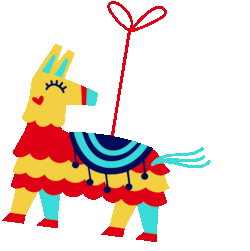Understanding Imposter Syndrome.
Taking responsibility for your successes means accepting that you’re worth it!
An inescapable fact of life when you discover that you’re a zebra, impostor syndrome is one of the characteristics of gifted or high-potential people. But what exactly is Impostor Syndrome?
Definition: impostor syndrome
This notion is fairly recent in psychology, dating back to the late 80s. She first appeared in the United States, then made her way to Europe. In recent years, impostor syndrome has been highlighted by the characteristics of high-potential profiles, but you don’t have tobe a zebra to be affected by this particularity.
Imposter syndrome is modesty taken to the extreme. Successes are always attributed to external circumstances. For example, luck, others, a misunderstanding, etc.
People suffering from impostor syndrome are generally quite successful people. But they can’t take credit for it.
Examples of cases in which impostor syndrome can be experienced:
- success in love (easy to seduce and to be in a relationship, pleases the people around him)
- social success (good job, comfortable salary, recurring promotions, colleagues who appreciate us, good circle of friends)
- difficult and challenging projects successfully completed (whatever the field, studies, home renovation, creating something)
- exceptional sporting ability
- talented artists
- physical attractiveness (beauty, charisma, charm, style)
- special qualities (humor, good orator, sensitivity, vision)
The list could go on and on!
People with impostor syndrome feel they are lying to and fooling those around them. It’s as if they weren’t worthy of all the praise and admiration they get. They feel like impostors.
Where does impostor syndrome come from?
Imposter syndrome is linked to several factors.
Factors contributing to impostor syndrome
Self-confidence and self-esteem are the main stumbling blocks for those affected by this feeling of imposture. There’s a gap between skills and the person’s perception of their own abilities. We devalue ourselves and are unable to feel legitimate in the successes we’re attributed.
A large proportion of the population will one day doubt their skills or abilities. However, in the case of impostor syndrome, the person will always have the feeling of cheating on his or her World, of not living up to the other person’s expectations.
Imposter syndrome is not a pathology
Yet impostor syndrome is not a pathology. It would be more a cognitive bias (according to Wikipedia: a cognitive bias is a distortion in the cognitive processing of information. The term bias refers to a systematic deviation from logical and logical thinking. rational to reality.) or a limiting belief (According to the out of the box website: a limiting belief is a view of our mind that makes us believe we’re not capable of doing certain things. It most often comes from our upbringing or past experiences (especially failures).
Imposter syndrome often stems from a problem of self-validation, which can be linked to upbringing. A child who has been brought up to do and reward: if you do well at school then we’ll love you and you’ll be a good kidand not in being: you have skills, abilities and are an interesting child for what you are, will suffer more easily from impostor syndrome. He’ll have been brought up to succeed, otherwise he doesn’t deserve to be loved.
We don’t teach children to validate themselves; we validate them through their actions. Every success becomes normal, because it’s essential to being recognized as a human being. Ultimately, this creates a problem of legitimacy. Yes, I did it, but because I had to.
Zebras and impostor syndrome
When you’re a zebra, questioning and doubt are part of who you are. Strangely enough, we can’t standfailure, but we don’t accept success any more. A zebra is intelligent, demanding and brilliant. Yet it has an exceptionally great power of self-sabotage! It’s never good enough…
Is intelligence closely correlated with impostor syndrome?
Thanks to our facilities, it feels like we’re there. which takes all the credit for our success. Or you’d have to have Einstein’s abilities. Achieving truly exceptional things in the eyes of the world… Most people are exceptional people, but they can’t figure out the law of gravity. To be, not to do…
A zebra will only feel legitimate if it achieves a feat of intergalactic proportions. Otherwise, he’ll see what he’s done as unexceptional, too simple… And yet.., you don’t necessarily have to encounter difficulties to be proud of the result.
My experience of impostor syndrome
I could give you hundreds of examples where I’ve attributed my successes to a whole host of external events… Whether professional or romantic. I said to myself, “But when they realize they’ve made a mistake about who I really am, they’ll change their minds! I have to say that it happened a little in both cases: waouuuuh this chick is too awesome. In fact, she’s completely nuts, unmanageable and far too emotional.
Lack of self-confidence
In any case, I alternated between a total lack of self-confidence (which created a lot of anxiety) and, on the contrary, enormous attempts at reassurance: no, but if they’ve chosen me, it must be for a reason… And I’d procrastinate for three days before I’d get a flash of motivation and go for it. But the next step was always: well, it wasn’t so complicated after all…
Imposter syndrome at work
For me, this means it’s very easy to manage projects from start to finish. I know exactly what I need to do, without having to think too much about it. As soon as I get the idea for a project, it’s like a giant cartography takes shape in my head. Everything follows logically. The project and its stakes seem to me to be ofobvious simplicity.
My conclusion was that managing projects was easy and within everyone’s reach, and when people congratulated me, I took it for granted. It was my job, I was paid to do it. I’m glad I could do it! But what I didn’t realize was that for just one person, the workload was enormous.
The trigger and awareness: others
When I started teaching, I realized that for some of my students, it was rather difficult, even very complicated. Even if we had a method and detailed the project point by point, some people still managed to make mistakes. It was a subject that wasn’t so obvious and, above all, I set the bar very high for them. I was asking them to manage projects like me, just as fast and just as well, but in doing so, I was directly setting them up for failure, because a large proportion of them weren’t up to it. This created a lot of frustration and disappointment… They had the impression of sucking.
I realized that I had to be less demanding and lower my goals. Push them, help them according to their abilities. I also had to face the facts. Finally, I was good at project management. It wasn’t by chance, nor was it because I knew the subject well. I loved it and was good at it. Now all I had to do was accept and assume.
And yet, at the time, I was full of doubts myself! I was constantly questioning myself. In this case: am I a good teacher? Obviously not, because they couldn’t do it as I was asking too much of them. This allowed me to adjust the cursor and confront myself.
Zebra, questioning and legitimacy
When I started teaching, I didn’t yet know I was a zebra and I had a big problem with my self-confidence. Everyone thought I was sure of myself, that I knew exactly what I wanted and what I was doing. Which just goes to show that, despite a severe case of impostor syndrome, you can put on a brave face without a care in the world.
I’ve worked a lot on myself, especially thanks to this experience. I had to be able to feel legitimate. Legitimate as a human being, legitimate as a woman, legitimate as a teacher, legitimate as a friend, and then, later, legitimate as a zebra.
How to overcome impostor syndrome?
To overcome this feeling, I used several methods.
CBT (cognitive behavioral therapy)
This therapy with a psychologist helped me to put what I was feeling and reality into perspective. The idea is to move beyond cognitive biases and dissonance and gradually overcome disabling symptoms, stress, avoidance, inhibitions, disproportionate reactions, erroneous cognitions, dysfunctional automatic thoughts or distress, which are at the root of poor emotional management and the suffering it can cause. Yes, that’s right! And it works. in any case, it worked for me.
Introduction to personal development
Personal development is a philosophy of life that involves working on oneself, bringing together a range of currents of thought, tools and methods to help us access our deepest essence.
By working on myself, I’ve learned to highlight my qualities, skills and abilities. I also put my finger on my shortcomings and what sometimes prevented me from going all the way with certain things. Personal development has given me a more objective and fairer view of myself. Now I know what I’m capable of, but I also know my limits.
For me, personal development and CBT are great tools for zebras who want to regain their self-confidence (yes, you deserve it!) and learn to let go (yes, you can learn to slow down!) to finally find your happiness!
Conclusion on impostor syndrome
Why torture yourself and force yourself to always look for difficulty, even if it means putting yourself in danger?
You don’t have to prove anything, and life doesn’t have to be difficult to be worthwhile.
You can’t achieve everything, so you might as well enjoy it when you do.
You can also find more information, resources and tools on Giftedness in Mel POINAS‘ book. With a lot of humor, Mel tells the story of the discovery of her giftedness and the routines she put in place to finally find her place!

Le livre
Écrit par une HPI !
Un témoignage et des solutions concrètes pour découvrir, comprendre et apprendre à vivre en étant HPI.



To go further, you can read
- Personal development
- Personal development, an interesting tool for the gifted
- Gifted, learning to manage your fears
- The best books about High Learning Potential
- Giftedness : 20 characteristics of complex and laminar profiles
- How to take the WAIS 4 test?
- How to tell others we are gifted?














